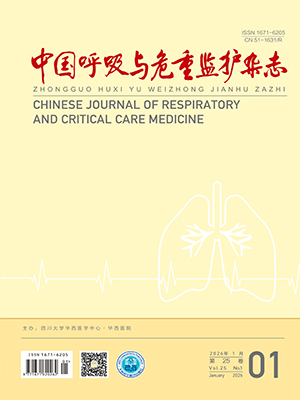Objective To investigate the protective effects of ulinastatin on acute lung injury ( ALI)induced by seawater drowning in rats. Methods Thirty male SD rats were randomly divided into three groups, ie. a control group, a model group, and an ulinastatin treatment group. The rats in the model group and the ulinastatin treatment group received intratracheal artificial seawater ( 4 mL/kg) instillation. Then the ulinastatin treatment group received ulinastatin ( 100 000 U/kg) injection after infusion of seawater while the model group received an injection of same amount of saline. The rats were sacrificed at 4 hours after instillation. The pathological changes of lung were evaluated by hematoxylin-eosin stain under light microscope. Lung wet/dry weight ratios were measured to assess the level of pulmonary edema.
Concentrations of tumor necrosis factor ( TNF) -α, interleukin ( IL) -1β, IL-6, and IL-10 in bronchoalveolar lavage fluid ( BALF) were detected by enzyme-linked immunosorbent assay ( ELISA) . The myeloperoxidase activity in lung tissue homogenates were measured by colorimetric method. Results Ulinastatin treatment
significantly relieved the decline of PaO2 and lung pathological changes, inhibited myeloperoxidase activity,and reduced lung wet/dry weight ratios. Ulinastatin also inhibited the release of TNF-α, IL-1β, and IL-6,whereas increased the expression of IL-10 simultaneously. Conclusion Ulinastatin attenuates seawater induced ALI, which may be related to its inhibitory effects on inflammation reaction through regulating cytokine secretion.
Citation: CAO Wanying ,JIN Faguang,LUO Ying,LI Zhichao. Effects of Ulinastatin Therapy on Acute Lung Injury after Seawater Drowning in Rats. Chinese Journal of Respiratory and Critical Care Medicine, 2011, 10(2): 139-143. doi: Copy
Copyright © the editorial department of Chinese Journal of Respiratory and Critical Care Medicine of West China Medical Publisher. All rights reserved




